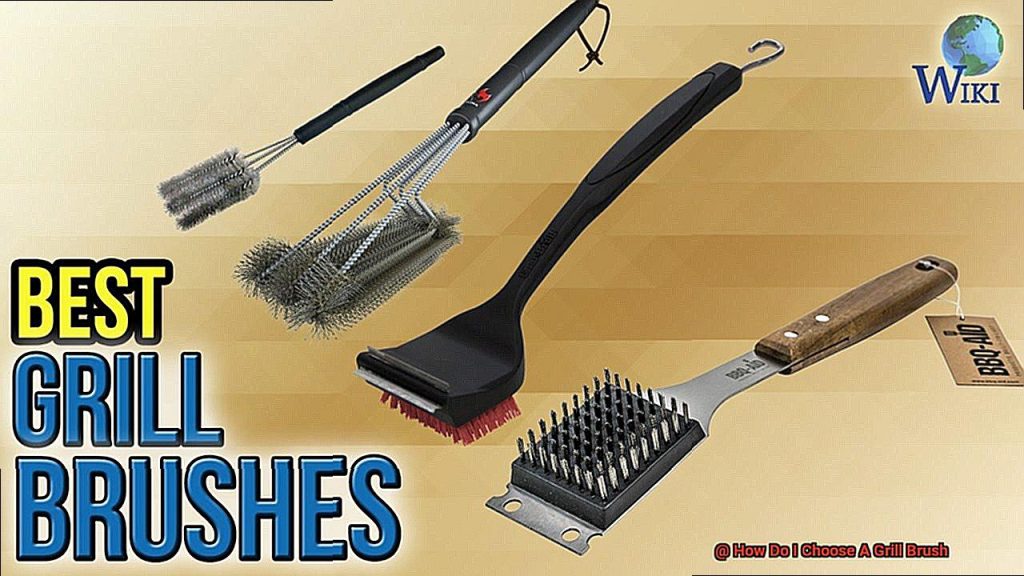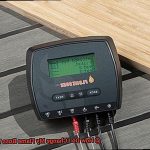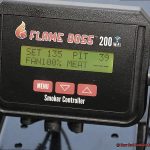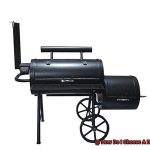Summertime is all about grilling, and nothing beats the taste of a perfectly cooked steak or burger. But when it comes to cleaning up your grill, things can get messy and frustrating if you don’t have the right tool for the job. That’s where the grill brush comes in – a simple yet effective tool designed to make cleaning your grill a breeze. However, with so many options available, choosing the right one can be overwhelming.
But don’t worry – we’ve got your back. In this article, we’re going to take you through everything you need to know about choosing the perfect grill brush for your setup. We’ll start by looking at the different types of bristles available, including wire, nylon, and brass, and explain which materials are best suited for different types of grills.
Next up, we’ll dive into the various shapes and styles of grill brushes on offer. From flat brushes to circular ones and even scraper-style tools – we’ll cover them all. And finally, we’ll talk about some extra features to look out for when selecting your brush – like durability and comfort – so that you can make an investment that lasts.
Whether you’re a seasoned BBQ pro or just starting out on your grilling journey, this guide will help you choose the perfect grill brush for your needs. So sit back, relax (with a cold drink in hand), and let’s get started.
Contents
What to Consider When Choosing a Grill Brush
When it comes to choosing a grill brush, there are several factors to consider. Each of these factors can have a significant impact on the quality of your grilling experience. Here are five key sub-sections to keep in mind when selecting a grill brush:
Bristle Type
The type of bristles on your grill brush is crucial for safe and effective cleaning. Stainless steel bristles are durable and can handle tough grime and grease buildup, but they can potentially damage porcelain-coated grates. Brass bristles are softer and less likely to scratch but may wear down faster. Nylon or silicone bristles are gentle and less likely to damage delicate grates but may not be as effective at cleaning.
Handle Length
A longer handle can be more comfortable to use and keep your hands farther away from the heat source. This is especially important when cleaning hot grates, making it safer and more comfortable to use.
Brush Head Size
Make sure the size of the brush head is proportional to the size of your grill grates. A larger brush head will cover more surface area but may be too cumbersome for smaller grills, while a smaller head is better for more precise cleaning jobs.
Durability
Look for a grill brush made from high-quality materials that will withstand frequent use and exposure to heat. A sturdy construction will ensure that your brush lasts for many grilling seasons to come.
Additional Features
Some grill brushes come with scraper attachments that can be used to remove stubborn debris from your grill grates. Others may have built-in hooks or loops that make them easy to store when not in use.
By considering all of these factors when choosing a grill brush, you’ll be able to find the perfect tool for all of your grilling needs. Don’t settle for a subpar grill brush that will leave your cooking surfaces dirty and your food tasting less than perfect.
Bristle Type
Grilling is an enjoyable way to cook and savor your favorite foods, but keeping the grill clean can be a daunting task. However, selecting the right grill brush can make it a breeze. When choosing a grill brush, one of the critical factors to consider is the bristle type.
There are four types of bristles found in grill brushes: stainless steel, brass, nylon, and silicone. Each bristle type has unique properties that make them suitable for specific situations.
Stainless steel bristles are the go-to choice for many grill enthusiasts. They are tough, durable, and highly effective at removing stubborn grime and grease from grill grates. However, stainless steel bristles can be harsh on delicate surfaces like porcelain-coated grates, causing unsightly scratches.
If you have porcelain-coated grates, brass bristles may be a better option for you. Brass bristles are softer and gentler on surfaces than stainless steel bristles. They are effective at cleaning your grill without causing any damage. However, they may not be as effective in removing tough residue from your grill grates.
For those who want a gentler option, nylon bristles are ideal. Nylon bristles are safe to use on any type of grate surface and will not cause any damage. Though they may not be as effective as other types of bristles when it comes to cleaning tough residue.
Silicone bristles are the newest type of bristle that has gained popularity recently. They are safe to use on any surface and exhibit excellent cleaning abilities while being hygienic too. Additionally, they don’t absorb water or bacteria like traditional bristles do, making them a more hygienic option.
Handle Length
The handle length affects your cleaning efficiency, comfort, and storage space. To help you make an informed decision, let’s explore the factors you should consider when selecting a grill brush with the right handle length.
Size Matters
The size of your grill should be the first factor to consider when choosing a handle length. For larger grills, a longer handle makes cleaning easier and more efficient, allowing you to reach far into the depths of the cooking surface with ease. However, with smaller grills, a shorter handle is more practical and easier to control.
Comfort Is Key
Comfort is essential when choosing a grill brush handle length. A shorter handle may provide better control and allow you to apply more pressure while scrubbing, making it more comfortable for some grillers. For tough, stuck-on food particles that require elbow grease to remove, a shorter handle may be the best option.
Storage Space
The amount of storage space you have in your outdoor kitchen or grill area should also be considered when selecting a handle length. A shorter handle may be more practical as it takes up less room and can be easily hung on a hook or stored in a drawer. A longer handle may require additional storage space or need to be stored separately from your other grilling accessories.
Personal Preference
Ultimately, your personal preference will determine the handle length that best suits your needs. Consider the size of your grill, the type of food you typically cook, and how much space you have for storage when making your decision. With these factors in mind, you can make an informed decision and select a grill brush with the perfect handle length for your grilling needs.
Brush Head Size
When it comes to grilling, the right tools can make all the difference. While most grillmasters focus on the type of grill or the fuel source, there’s another factor that’s just as important: the size of your grill brush head. Don’t believe me? Let’s dive in and explore why this seemingly small detail can have a big impact on your cleaning game.
First off, let’s take a closer look at brush head sizes. Grill brush heads typically range from 2 to 5 inches in width, and each size has its own benefits. A smaller brush head is perfect for smaller grills or for reaching those pesky corners and crevices. Meanwhile, a larger brush head is better suited for bigger grills with wider grates. However, keep in mind that a larger brush head may become cumbersome and difficult to handle.
But size isn’t the only factor to consider when selecting a grill brush head. Bristle density is also important to note. A higher density will provide more cleaning power, but it may be harder to clean between grates. Conversely, a lower density may not be as powerful but can easily clean those hard-to-reach spots.
So how do you choose the right brush head size? It all depends on your specific needs and preferences. Consider the size of your grill and how much surface area you need to cover for efficient cleaning. And don’t forget to think about your own comfort level when handling the brush head.
Durability
Grilling is a beloved pastime for many, but choosing the right grill brush can be a daunting task. One key factor to consider when making your selection is durability. You want a brush that can stand up to the heat and pressure of regular use without wearing out or breaking down easily.
When evaluating the durability of a grill brush, there are several important factors to consider. First and foremost, you need to look at the bristle material. Stainless steel bristles are incredibly durable and long-lasting, able to withstand high temperatures and pressure without bending or breaking easily. However, if you’re worried about scratching your grill grates, brass or nylon bristles may be a better option. These materials are gentler on grates but not as durable as stainless steel.
In addition to bristle material, the handle construction is also an important consideration. A sturdy handle is critical for a durable grill brush. Look for handles made from high-quality materials such as wood, metal, or durable plastic. Avoid flimsy handles that can break easily and render the brush useless.
Finally, think about how easy it will be to clean the brush after use. A brush with hard-to-reach areas or crevices can be challenging to clean thoroughly, which can lead to bacteria buildup over time. Select a brush with a simple design that can be easily cleaned with soap and water.
To sum it up, when choosing a grill brush with durability in mind, prioritize stainless steel bristles (or brass/nylon if you’re concerned about scratches), a well-constructed handle, and an easy-to-clean design.
Price
Grilling is an art, and having the right tools is essential for achieving that perfect sear on your juicy steaks, burgers, and veggies. However, when it comes to choosing a grill brush, price is definitely a factor that cannot be ignored. But why is it so crucial to strike a balance between budget and quality when selecting a grill brush? Let’s dive into the research and find out.
Firstly, let’s talk about the different price ranges for grill brushes. You can find options for under $10, all the way up to over $50. It’s tempting to grab the cheaper ones, but they may not be made of high-quality materials or effective at cleaning your grill grates. On the other hand, the pricey options often offer better materials and additional features like replaceable brush heads or longer handles for easier use.
When deciding how much to spend on a grill brush, consider how often you plan on using it. If you’re an occasional griller, a cheaper option may suffice. But if you’re someone who grills frequently, investing in a more expensive, high-quality option could ultimately save you money in the long run by lasting longer and being more effective at cleaning.
Moreover, don’t forget about value sets or bundles that include other grilling tools. These can be a great option for those just starting out or looking to refresh their grilling arsenal. You might be able to snag a good deal on several items that you need anyway.
Different Types of Grill Brushes
As a grill master, you know that keeping your grill grates clean is crucial to ensuring delicious and healthy meals. But with so many different types of grill brushes available in the market, it can be challenging to choose the right one for your needs. To help you out, here are five sub-sections explaining the different types of grill brushes and how to choose the right one for you.
Bristle Brush
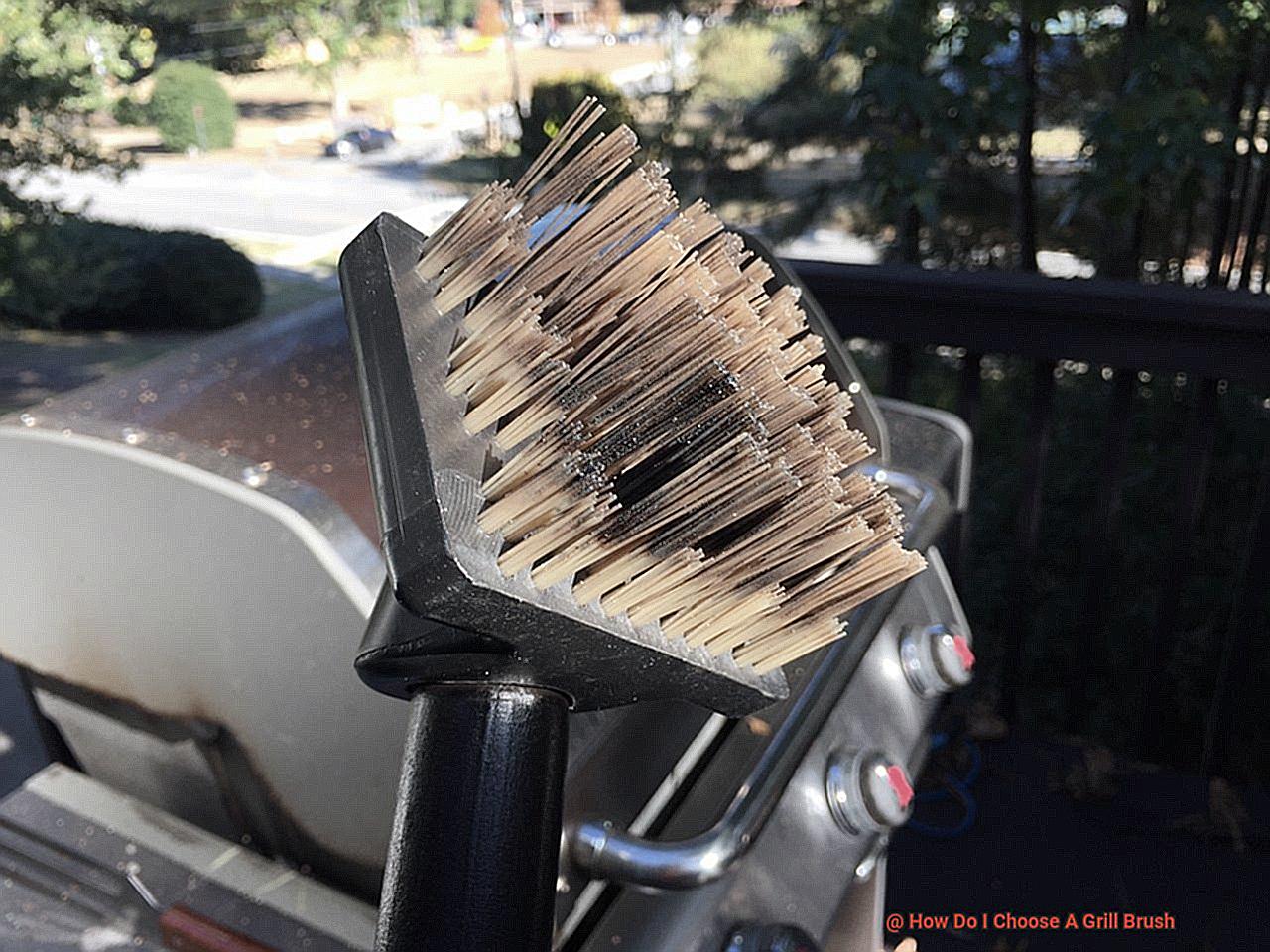
The bristle brush is the most common type of grill brush that you will find in the market. It is made up of wire bristles that are used to scrub the grates of your grill. Bristle brushes come in different sizes and shapes, making them suitable for use with both gas and charcoal grills. However, it’s important to note that bristle brushes can potentially damage porcelain-coated grates, so use them with caution.
Nylon Brush
Nylon brushes are a great alternative to bristle brushes. They are made up of soft nylon bristles that are safe to use on all types of grills, including porcelain and cast iron grates. Nylon brushes are also easy to clean and maintain, making them a popular choice among grilling enthusiasts.
Stainless Steel Brush
Stainless steel brushes are another popular option for cleaning your grill grates. They are durable, long-lasting, and effective at removing stuck-on food debris. However, they can scratch porcelain grates, so it’s best to use them on stainless steel or cast iron grates only.
Scraper Brush
A scraper brush is a combination of a scraper and a brush. It is designed to remove tough food particles from your grill grates. Scraper brushes come in different sizes and shapes, making them suitable for use with various types of grills.
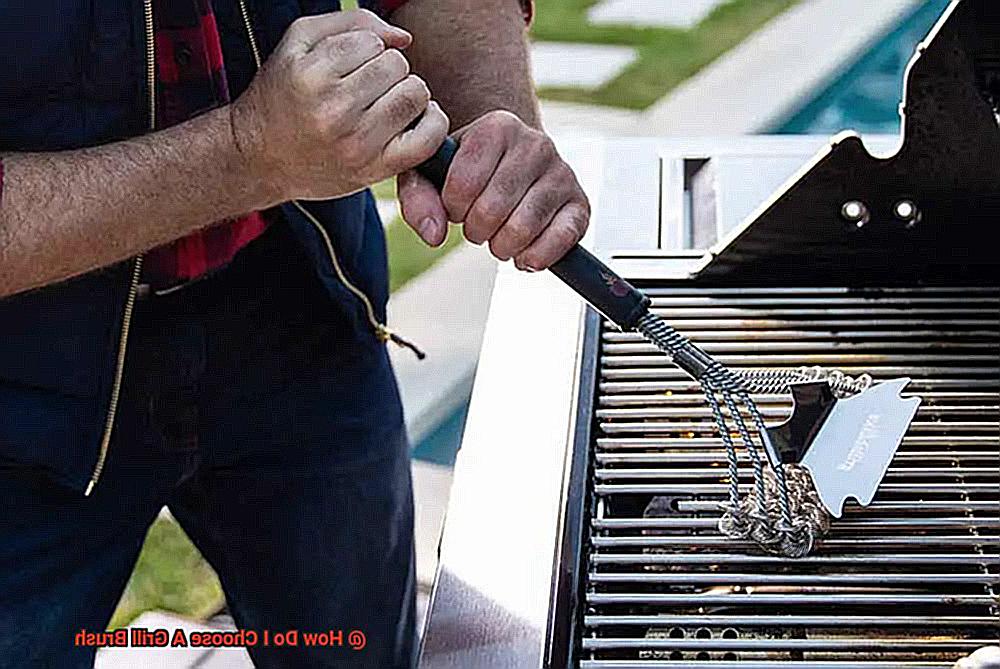
Brass Brush
Brass brushes are gentle on grill grates but still effective at removing stubborn food debris. They are made up of soft brass bristles that won’t scratch or damage your grill grates. Brass brushes are particularly suitable for use on delicate surfaces such as porcelain-coated grates.
When choosing a grill brush, it’s essential to consider factors such as the type of grill you have, the material of your grill grates, and your personal preferences. For example, if you have a porcelain-coated grate, a nylon or brass brush may be a better option than a wire or stainless steel brush. Ultimately, the right grill brush for you will depend on your specific needs and requirements.
Pros and Cons of Different Materials for Grill Brushes
Choosing the right material is crucial to ensure you get the best results while keeping your grill in top condition. Let’s explore the pros and cons of different materials for grill brushes.
Stainless steel is a durable option that can handle heavy-duty grilling. It boasts tough bristles that can tackle even the most stubborn grease and grime. However, if you have porcelain-coated grates, stainless steel may not be the most suitable choice as it can scratch or damage them.
If you’re looking for a gentler alternative, brass brushes are ideal. They are softer than stainless steel and won’t cause any damage to delicate surfaces like porcelain-coated grates. However, they may not last as long as stainless steel and may need replacing more frequently.
Nylon brushes are the softest type of grill brush and perfect for non-stick surfaces. They are also safe for use on any type of grill, including porcelain-coated grates. However, they may not be as effective at removing tough grease and food particles compared to other materials.
It’s essential to keep safety in mind when selecting a grill brush. Wire bristles can pose a serious hazard if they break off and end up in your food. Check your brush regularly for any loose bristles and replace it if necessary.
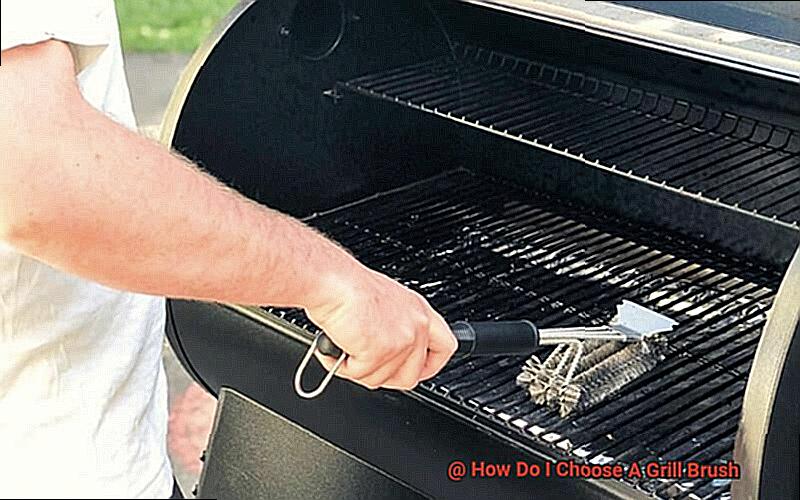
Tips for Caring for Your Grill Brush
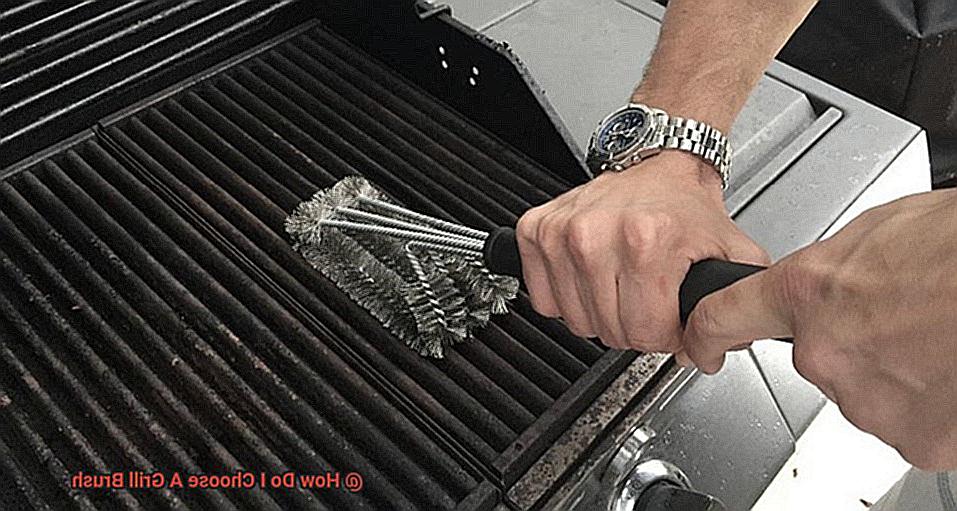
Grilling is a beloved pastime for many, and keeping your grill clean is essential for both safety and taste. A good grill brush can help keep your grill grates free of debris and food particles. But how do you care for this trusty tool? Here are five tips for properly caring for your grill brush:
Clean it after each use
After grilling, take a few minutes to clean your grill brush. Soak the bristles in hot soapy water for a few minutes, then rinse thoroughly. This will remove any leftover grease or food particles that can accumulate on the bristles.
Store it properly
After cleaning your grill brush, store it in a dry, cool place. Moisture can cause mold or mildew to grow on the bristles, which can be harmful to your health. If you’re storing your brush outside, cover it with a plastic bag or other protective covering to keep it dry.
Inspect it regularly
Check your grill brush frequently for signs of wear and tear. If the bristles are frayed or damaged, it’s time to replace your brush to avoid any potential safety hazards or ineffective cleaning.
Use gentle pressure
When using your grill brush, avoid applying too much pressure when scrubbing the grates. This can damage the bristles and make them less effective over time. Instead, use a gentle back-and-forth motion to remove any stuck-on food or debris.
Disinfect every few uses
To prevent bacteria buildup on your grill brush, give it a thorough cleaning with a disinfectant solution every few uses. This will help ensure that your brush is clean and safe to use.
Safety Precautions When Cleaning the Grill with a Brush
As the barbecue season approaches, it’s important to remember that cleaning your grill with a brush requires some essential safety precautions. Here are some tips to ensure you clean your grill without injuring yourself or others.
Let the Grill Cool Down
Before you start cleaning your grill, make sure it’s completely cooled down. This will prevent any accidental burns or injuries.
Choose the Right Brush
When selecting a brush for your grill, choose one with sturdy bristles that won’t easily break off. Avoid brushes with wire bristles that can snap off and become a safety hazard.
Use Gentle Pressure and Long Strokes
When cleaning the grates with a brush, apply gentle pressure and use long strokes. Avoid using too much force or scrubbing aggressively, as this can damage the grates and cause the bristles to break off.
Wear Protective Gloves
Wearing protective gloves while cleaning the grill not only shields your hands from potential burns but also provides a barrier between the brush bristles and your skin.
Inspect the Grates Thoroughly
After cleaning the grill with a brush, inspect the grates thoroughly to ensure no loose bristles remain behind. If you find any stray bristles, remove them carefully using tongs or a damp cloth before cooking on the grill again.
How Often Should You Replace Your Grill Brush?
Grilling is more than just a cooking method – it’s a way of life. And as any grill master knows, keeping your grill clean is crucial for both safety and taste. Enter the trusty grill brush. But when should you replace it?
There are a few factors to consider. Firstly, inspect the condition of your brush. If the bristles are worn down or falling out, it’s time for a replacement. Using an old brush can leave behind loose bristles that may get stuck on your grill grates and potentially be ingested, which can be dangerous.
Another factor to keep in mind is how often you use your grill. If you’re not grilling frequently, you may be able to use the same brush for longer than someone who grills every day. Regardless of frequency, inspect your brush regularly for any signs of wear and tear.
Experts suggest replacing your grill brush at least once a season, especially if you’re a frequent griller. This ensures that you always have a reliable tool for keeping your grill clean and safe.
So when is it time to say goodbye to your trusty grill brush? Ultimately, use common sense. If it looks worn out or is shedding bristles, it’s time to invest in a new one. And if you’re not sure, it’s always better to err on the side of caution and replace it anyway.
Here are some key takeaways:
- Inspect your grill brush regularly for wear and tear.
- Replace your brush if the bristles are worn down or falling out.
- Consider replacing your brush at least once a season if you’re a frequent griller.
- Use common sense and replace your brush if it looks worn out or is shedding bristles.
Benefits of Using a Grill Brush
Grilling is more than just cooking food, it’s a social event that brings friends and family together. But, the buildup of grease and food residue on your grill grates can make it difficult to enjoy your meal. Fortunately, a grill brush is an essential tool that can help make your grilling experience even better. Let’s take a closer look at the benefits of using a grill brush.
Firstly, using a grill brush ensures that your food tastes better. By removing any debris or food residue from your grill grates before and after cooking, your food won’t stick to the grates. This results in better-tasting food that’s evenly cooked. So, not only will you avoid burnt and undercooked spots, but you’ll also have a more flavorful meal.
Moreover, cleaning your grill grates with a grill brush improves cooking efficiency. A clean grill grate allows for even heat distribution, which means that your food will cook more evenly. This results in better cooking efficiency and less time spent hovering over the grill trying to get everything just right.
Did you know that using a grill brush also prolongs the life of your grill grates? Grease and food residue can corrode and damage your grates over time, leading to costly replacements. By regularly cleaning your grates with a grill brush, you can prolong their life and avoid having to buy new ones.
Another benefit of using a grill brush is promoting healthier cooking habits. A dirty grill grate can harbor harmful bacteria that can cause foodborne illnesses. By regularly cleaning your grates with a grill brush, you reduce the risk of contamination and promote healthier eating habits.
Finally, using a grill brush is convenient and easy. You don’t need any special skills or training to use one. Simply apply pressure to the grates and scrub away any debris or residue. It’s an easy-to-use tool that makes a big difference in your grilling experience.
7Lo4l7OxA9o” >
Conclusion
When it comes to choosing a grill brush, there are several factors to consider. First and foremost, you want to make sure the brush is safe for your grill grates. Look for brushes with bristles made of materials such as stainless steel or brass, as they are less likely to break off and potentially end up in your food.
Another important factor is the type of handle on the brush. A long handle can be helpful for reaching all areas of your grill grates without getting too close to the heat. Additionally, some handles are designed with ergonomic grips that make them more comfortable to hold and use.
Finally, consider any additional features that might be useful for your specific needs. For example, some grill brushes come with scraper blades built into the head, which can be helpful for removing stubborn stuck-on debris.
Overall, taking the time to choose the right grill brush can help ensure a safe and enjoyable grilling experience.

